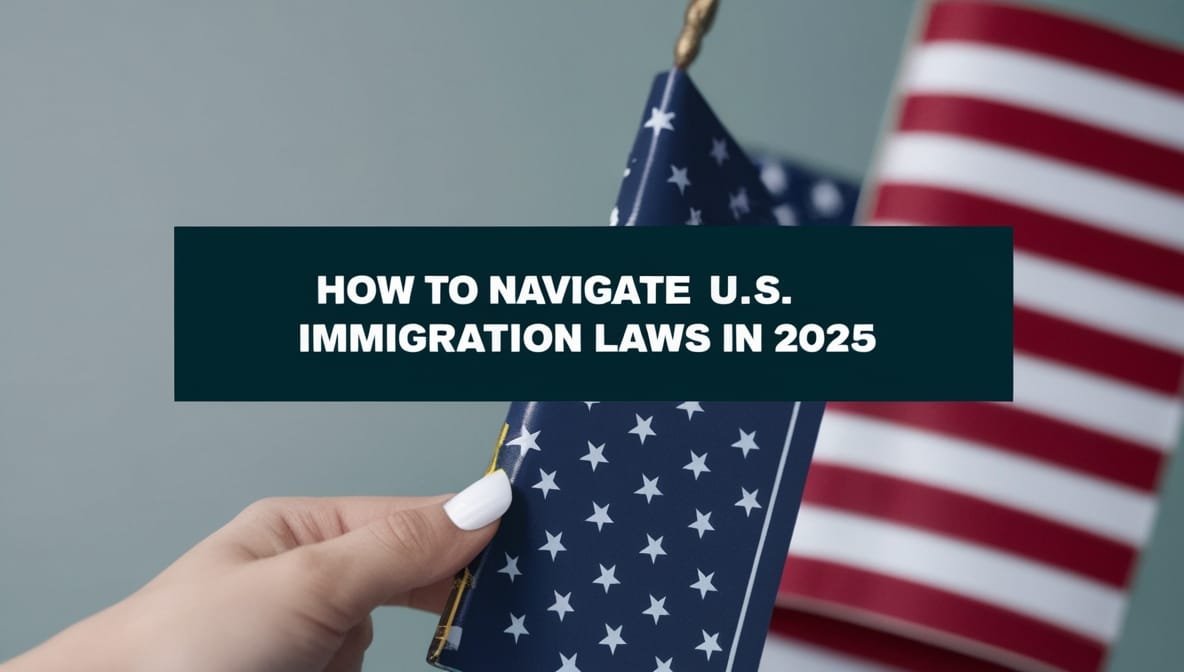How Much Does a Speeding Ticket Cost in California : Have you ever felt your heart race as you spot those flashing red and blue lights in your rearview mirror? If you’ve been caught speeding in California, you’re probably wondering, “How much is this going to cost me?” The answer might surprise you – and not in a good way. Speeding tickets in the Golden State can range from a hefty $234 to an eye-watering $2,126, depending on various factors.
But here’s the kicker: the fine you see on your ticket is just the tip of the iceberg. Hidden fees, penalties, and long-term consequences can turn a simple speeding violation into a financial nightmare. From increased insurance premiums to potential license suspensions, the true cost of a California speeding ticket extends far beyond the initial fine.
In this blog post, we’ll break down everything you need to know about speeding tickets in California. We’ll explore the factors that influence ticket costs, dive into the base fines and additional fees, and uncover the often-overlooked consequences that can impact your wallet and your life. Whether you’re facing a ticket or just want to stay informed, buckle up as we navigate the complex world of California speeding violations.
Also Read – How do I Request a Stop Sign Traffic Signal or Speed
Understanding California Speeding Tickets
A. Definition of a speeding ticket
A speeding ticket in California is an official citation issued by law enforcement to drivers who exceed the posted speed limit or drive at an unsafe speed for current conditions. These tickets serve as a legal notice of a traffic violation and typically require the offender to pay a fine or appear in court.
B. Legal basis for speeding tickets in California
California’s speeding laws are primarily based on the California Vehicle Code (CVC). The most relevant sections include:
- CVC 22350: Basic Speed Law
- CVC 22352: Prima Facie Speed Limits
- CVC 22354: State Highway Speed Limits
These laws provide the foundation for enforcing speed limits and issuing citations to violators. The Basic Speed Law (CVC 22350) is particularly important as it requires drivers to operate their vehicles at a speed that is reasonable and prudent for the current conditions, regardless of posted limits.
C. Types of speeding violations
California recognizes several types of speeding violations, each with its own set of penalties and potential consequences. Here’s a breakdown of the most common types:
- Absolute Speed Limit Violations
- Presumed Speed Limit Violations
- Basic Speed Law Violations
- Construction Zone Speeding
- School Zone Speeding
To better understand these violations and their associated fines, let’s look at the following comparison table:
| Violation Type | Description | Typical Fine Range |
|---|---|---|
| Absolute Speed Limit | Exceeding the posted speed limit | $35 – $500+ |
| Presumed Speed Limit | Driving over the prima facie speed limit | $35 – $350+ |
| Basic Speed Law | Driving too fast for conditions | $35 – $300+ |
| Construction Zone | Speeding in a marked construction area | $150 – $1,000+ |
| School Zone | Exceeding 25 mph in a school zone | $150 – $500+ |
It’s important to note that these fines are base amounts and do not include additional fees and penalties that can significantly increase the total cost of a speeding ticket in California.
The severity of the violation and the driver’s speed relative to the posted limit play crucial roles in determining the final ticket cost. For instance, going 15 mph over the speed limit will typically result in a lower fine than going 20 mph or more over the limit.
Understanding these different types of speeding violations can help drivers better navigate California’s traffic laws and potentially avoid costly tickets. However, it’s always best to adhere to posted speed limits and drive at a safe speed for the current conditions to ensure road safety for all.
Now that we’ve covered the basics of California speeding tickets, let’s explore the various factors that can affect the cost of these citations.
Factors Affecting Speeding Ticket Costs

Factors Affecting Speeding Ticket Costs
Now that we understand the basics of California speeding tickets, let’s delve into the various factors that can significantly impact the cost of your citation. The final amount you’ll pay for a speeding ticket in California isn’t just a fixed fee; it’s influenced by several key elements.
A. Speed over the limit
The extent to which you exceed the posted speed limit plays a crucial role in determining your ticket’s cost. Generally, the faster you’re going, the more expensive your ticket will be. Here’s a breakdown of how speed affects fines:
| Speed Over Limit | Base Fine Range |
|---|---|
| 1-15 mph | $35 – $100 |
| 16-25 mph | $100 – $200 |
| 26+ mph | $250 – $500 |
It’s worth noting that going 20 mph over the limit or exceeding 100 mph can result in substantially higher fines and additional penalties.
B. Location of the violation
Where you receive your speeding ticket can significantly impact its cost. Fines may vary based on:
- County jurisdiction
- Highway vs. local road
- Urban vs. rural areas
For instance, speeding in a densely populated urban area might incur higher fines due to increased safety risks.
C. Driver’s record
Your driving history plays a crucial role in determining the cost of your speeding ticket. Factors that can influence the fine include:
- Previous traffic violations
- Number of points on your license
- Time elapsed since your last infraction
First-time offenders may receive more lenient treatment, while repeat offenders could face steeper fines and additional penalties.
D. Special circumstances (school zones, construction areas)
Certain areas require extra caution, and speeding in these zones can result in significantly higher fines:
- School zones: Fines are typically doubled when speeding in active school zones.
- Construction areas: Speeding in work zones can lead to fines up to $1,000.
- Safety enhancement zones: Some areas are designated as safety enhancement zones, where fines may be increased.
It’s crucial to be aware of these special circumstances and adjust your driving accordingly to avoid hefty penalties.
Understanding these factors can help you grasp why speeding ticket costs can vary widely in California. While a basic speeding violation might result in a relatively modest fine, the combination of these factors can quickly escalate the total cost. Next, we’ll examine the base fines for speeding tickets to give you a clearer picture of what you might expect to pay.
Base Fines for Speeding Tickets

Base Fines for Speeding Tickets
Now that we’ve explored the factors affecting speeding ticket costs, let’s dive into the specific base fines for speeding tickets in California. These fines are determined by how much you exceed the speed limit, with three main categories:
A. 1-15 mph over the limit
For drivers caught speeding 1-15 mph over the posted limit, the base fine typically ranges from $35 to $100. This is the lowest tier of speeding violations, but don’t be fooled – additional fees and penalties can significantly increase the total cost.
B. 16-25 mph over the limit
When you’re caught driving 16-25 mph over the speed limit, the base fine jumps considerably. In this range, you can expect to pay between $100 and $200 as a base fine. This category often applies to those wondering, “How much is a speeding ticket in California for going 85 in a 65?”
C. 26+ mph over the limit
Exceeding the speed limit by 26 mph or more is considered a more serious offense. The base fine for this category typically starts at $250 and can go up to $500, depending on the exact speed and circumstances.
It’s important to note that these are just the base fines. The actual cost of a speeding ticket in California can be much higher when additional fees and penalties are factored in. To give you a clearer picture, let’s look at a comparison of these base fines:
| Speed Over Limit | Base Fine Range |
|---|---|
| 1-15 mph | $35 – $100 |
| 16-25 mph | $100 – $200 |
| 26+ mph | $250 – $500 |
Keep in mind that these fines can vary slightly depending on the jurisdiction and specific circumstances of the violation. For instance, speeding in a construction zone or school zone can result in higher fines.
For those asking, “How much is a first time speeding ticket in California?” it’s worth noting that California doesn’t typically offer reduced fines for first-time offenders. However, first-time offenders may have more options for dealing with the ticket, such as attending traffic school to avoid points on their license.
If you’re looking for a more precise estimate, a speeding ticket cost California calculator can be a useful tool. These calculators often take into account not just the base fine, but also the additional fees and assessments that can significantly increase the total cost.
As we move forward, it’s crucial to understand that these base fines are just the starting point. In the next section, we’ll explore the additional fees and penalties that can make a California speeding ticket much more expensive than you might expect.
Additional Fees and Penalties
Now that we’ve covered the base fines for speeding tickets in California, it’s important to understand that the actual cost can be significantly higher due to various additional fees and penalties. These extras can often make the final amount much more than the initial fine, catching many drivers off guard.
A. Court Fees
Court fees are a substantial addition to the base fine of a speeding ticket in California. These fees vary depending on the county and the specific court handling your case. On average, court fees can range from $120 to $300 or more. These fees cover the administrative costs of processing your ticket and maintaining the court system.
B. County Penalties
In addition to court fees, counties in California often impose their own penalties on traffic violations. These penalties can vary widely from one county to another, typically ranging from $70 to $200. The purpose of these penalties is to fund local law enforcement and traffic safety programs.
C. State Surcharges
California also applies state surcharges to speeding tickets. These surcharges are used to fund various state programs and initiatives. Some common state surcharges include:
- State Court Construction Fee: $50
- Court Operations Assessment: $40
- Conviction Assessment Fee: $35
- Night Court Fee: $1
D. Traffic School Fees
While not mandatory, many drivers opt to attend traffic school to avoid points on their driving record. However, this comes with its own set of costs:
- Traffic School Fee: $25 (paid to the court)
- Traffic School Tuition: $20 to $45 (paid to the school)
Here’s a breakdown of potential additional fees and penalties for a typical speeding ticket in California:
| Fee/Penalty Type | Typical Range |
|---|---|
| Court Fees | $120 – $300 |
| County Penalties | $70 – $200 |
| State Surcharges | $126 – $150 |
| Traffic School Fees | $45 – $70 |
It’s important to note that these additional fees and penalties can often more than double the initial base fine of a speeding ticket. For example, a base fine of $100 for speeding 15 mph over the limit could easily turn into a total cost of $400 or more after all fees and penalties are applied.
To get a more accurate estimate of your total speeding ticket cost, consider using a California speeding ticket cost calculator. These online tools take into account various factors, including the specific violation and county, to provide a more precise estimate of the total financial impact.
With these additional fees and penalties in mind, let’s move on to examine a detailed breakdown of the total cost you might expect for a speeding ticket in California.
Total Cost Breakdown

Total Cost Breakdown
Now that we’ve explored the various components that contribute to the cost of a speeding ticket in California, let’s break down the total costs and compare them with other states.
Minimum and Maximum Ticket Costs
The total cost of a speeding ticket in California can vary widely depending on several factors. Here’s a breakdown of the potential costs:
| Speed Over Limit | Minimum Cost | Maximum Cost |
|---|---|---|
| 1-15 mph | $230 | $360 |
| 16-25 mph | $360 | $490 |
| 26+ mph | $490 | $1,000+ |
It’s important to note that these figures include base fines and additional fees. The maximum costs can be even higher in certain circumstances, such as speeding in a construction zone or school zone.
Average Speeding Ticket Cost in California
The average cost of a speeding ticket in California typically falls between $230 and $490. However, for those wondering “How much is a speeding ticket in California for going 85 in a 65?” the answer is likely to be on the higher end of this range, potentially exceeding $500 when all fees are included.
For first-time offenders asking, “How much is a first time speeding ticket in California?” the cost is generally the same as for repeat offenders. However, first-time offenders may have more options for reducing the impact on their driving record.
Comparison with Other States
California’s speeding ticket costs are among the highest in the nation. Here’s how they compare to some other states:
- New York: Average cost $150-$600
- Texas: Average cost $130-$300
- Florida: Average cost $200-$400
- Nevada: Average cost $200-$1,000
While California’s costs are high, they’re not always the highest. For instance, Virginia can impose fines of up to $2,500 for severe speeding offenses.
For those seeking more precise information, a “speeding ticket cost California calculator” can be a useful tool. These online resources take into account specific details of your violation to provide a more accurate estimate.
It’s worth noting that costs can change over time. Those searching for “Speeding ticket California cost 2024” should be aware that while base fines tend to remain stable, additional fees and penalties may be adjusted annually.
Ultimately, the high cost of speeding tickets in California serves as a strong deterrent against unsafe driving practices. Whether you’re caught going 15 over or facing a more severe violation like “How much is a speeding ticket in California for going 90 in a 65,” the financial impact can be significant.
Consequences Beyond Monetary Fines
Now that we’ve covered the financial aspects of speeding tickets in California, it’s crucial to understand that the repercussions extend far beyond just paying a fine. Let’s explore the additional consequences that can significantly impact your driving record, insurance costs, and even your ability to drive legally.
Points on Driving Record
When you receive a speeding ticket in California, it’s not just about the immediate cost. The state employs a point system that can have long-lasting effects on your driving privileges:
- 1 point: Typically added for speeding violations less than 25 mph over the limit
- 2 points: Usually assigned for more severe speeding offenses, such as going 26 mph or more over the limit
Here’s a breakdown of how points accumulate and their potential consequences:
| Points Accumulated | Time Frame | Potential Consequence |
|---|---|---|
| 4 points | 12 months | Warning letter |
| 6 points | 24 months | 6-month probation |
| 8 points | 36 months | License suspension |
These points remain on your driving record for 36 months, potentially affecting various aspects of your life, including employment opportunities that involve driving.
Insurance Premium Increases
One of the most significant long-term consequences of a speeding ticket is the impact on your auto insurance premiums. Insurance companies view speeding violations as indicators of risky driving behavior, which often leads to:
- Immediate premium increases upon policy renewal
- Potential loss of safe driver discounts
- Higher rates persisting for 3-5 years after the violation
On average, California drivers can expect their insurance rates to increase by:
- 20-30% for a first offense
- Up to 50% for repeat offenses within a short period
This means that a single speeding ticket could cost you hundreds or even thousands of dollars in increased premiums over several years.
License Suspension Risks
Accumulating too many points or receiving multiple speeding tickets within a short period can put your driving privileges at risk. In California, your license may be suspended if you:
- Accumulate 4 points in 12 months
- Receive 6 points in 24 months
- Collect 8 points in 36 months
A suspended license can have severe consequences on your daily life, including:
- Difficulty commuting to work or school
- Increased insurance rates upon reinstatement
- Potential job loss for positions requiring a valid license
- Legal repercussions if caught driving with a suspended license
It’s important to note that certain speeding violations, particularly those involving excessive speeds or reckless driving, can result in immediate license suspension, even for first-time offenders.
Understanding these consequences highlights the importance of safe driving and adhering to speed limits. While the immediate cost of a speeding ticket in California can be substantial, the long-term effects on your driving record, insurance premiums, and license status can be even more impactful.
Options for Handling a Speeding Ticket

Options for Handling a Speeding Ticket
Now that we’ve covered the costs and consequences of speeding tickets in California, let’s explore your options for handling one. If you find yourself with a speeding ticket in the Golden State, you have several paths to consider.
A. Paying the Fine
The simplest option is to pay the fine outright. This involves:
- Acknowledging guilt
- Paying the full amount of the ticket
- Accepting the points on your driving record
While this is the quickest resolution, it may not always be the best choice, especially for first-time offenders or those concerned about insurance rate increases.
B. Contesting the Ticket
If you believe you were wrongly cited or have a valid defense, contesting the ticket might be your best option. Here’s what this process typically involves:
- Pleading not guilty
- Attending a court hearing
- Presenting your case to a judge
| Pros of Contesting | Cons of Contesting |
|---|---|
| Possibility of dismissal | Time-consuming |
| Potential fine reduction | No guarantee of success |
| No points on record if won | May incur additional costs |
C. Traffic School Eligibility
For many drivers, especially first-time offenders, traffic school can be an excellent option. Here’s what you need to know:
- Typically available for minor infractions
- Requires completion of an approved course
- Keeps the violation off your driving record
- May prevent insurance rate increases
Eligibility criteria:
- No more than one point on your record in the past 18 months
- Not cited for speeding more than 25 mph over the limit
D. Legal Representation
For more complex cases or if you’re unsure about handling the ticket yourself, seeking legal representation might be beneficial. An experienced traffic attorney can:
- Analyze your case
- Negotiate with prosecutors
- Represent you in court
While this option involves additional costs, it may lead to better outcomes, especially for:
- High-speed violations
- Repeat offenders
- Cases with potential severe consequences
When deciding how to handle your speeding ticket, consider factors such as:
- The severity of the violation
- Your driving record
- Potential impacts on insurance rates
- Time and resources available to contest the ticket
Remember, each case is unique, and what works best for one driver may not be ideal for another. Carefully weigh your options and choose the path that best aligns with your circumstances and goals.nstruction.
Official Website For Know More – Click Here






